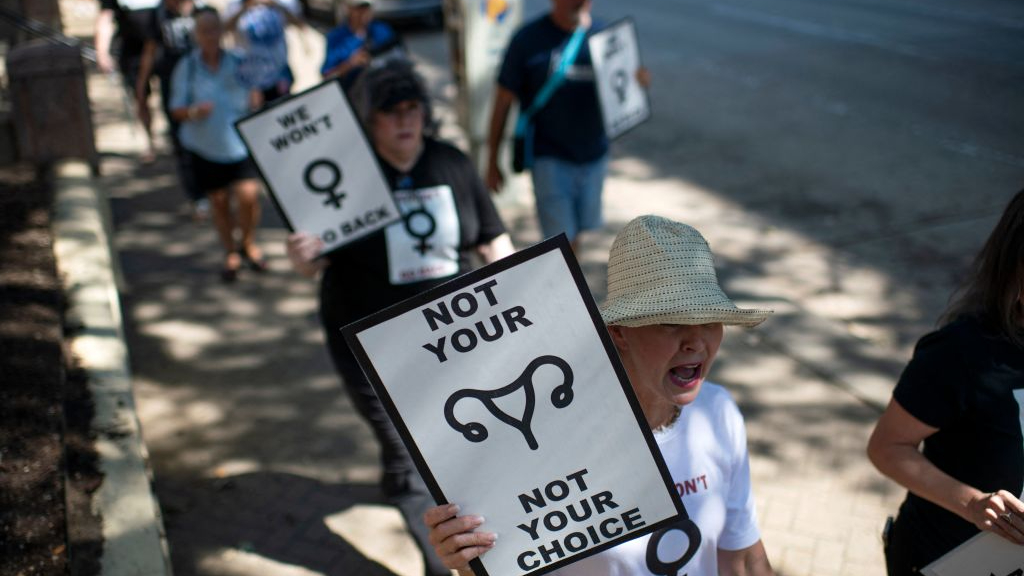Texas court allows execution in shaken baby syndrome case
The state could be the first to carry out the death penalty for someone convicted due to the diagnosis, despite its controversial applicability


A free daily email with the biggest news stories of the day – and the best features from TheWeek.com
You are now subscribed
Your newsletter sign-up was successful
Texas is set to become the first state in the country to execute someone convicted for causing a brain injury commonly known as "shaken baby syndrome." Its highest criminal court declined to stop the Oct. 17 execution of a man named Robert Roberson, even after his team argued that the cause of his victim's death, now known as abusive head trauma (AHT), was based on since-debunked pseudoscience. And while Texas passed a first-of-its-kind "junk science law" a decade ago for situations like this, Roberson will not benefit from it.
Questioning the validity of shaken baby syndrome
Roberson has maintained his innocence from death row ever since he was convicted of killing his two-year-old daughter, Nikki Curtis, in 2002. His attorneys said they have uncovered new evidence in previously hidden medical records that indicate she died from severe pneumonia. Also, in the decades since Roberson's trial, the theory behind AHT has "been entirely exposed as devoid of any scientific underpinnings," his team said in the recently denied motion for a stay of execution.
The Texas Court of Criminal Appeals previously halted his execution in 2016 and sent his case back to trial court after the "scientific consensus around shaken baby syndrome diagnoses came into question," said the Texas Tribune. That appeal came three years after a state law passed allowing Texas courts to overturn convictions if the "scientific evidence used to reach a verdict has since changed or been discredited." But in 2023, the court reversed its decision and set his new execution date for this past July.
The Week
Escape your echo chamber. Get the facts behind the news, plus analysis from multiple perspectives.

Sign up for The Week's Free Newsletters
From our morning news briefing to a weekly Good News Newsletter, get the best of The Week delivered directly to your inbox.
From our morning news briefing to a weekly Good News Newsletter, get the best of The Week delivered directly to your inbox.
Child abuse specialists previously assumed that bleeding in the brain, brain swelling and retinal hemorrhages were unequivocal proof that someone violently shook a child. However, several studies in the 2000s and 2010s "challenged the assumption that the triad of AHT symptoms was conclusive evidence of child abuse," said Reason. Research indicated that the AHT diagnosis, previously focused on the triad of symptoms, "now contemplates a wide range of nontraumatic possibilities," said a 2009 Washington University Law Review article summarizing the findings.
Even Norman Guthkelch, the pediatric neurosurgeon who first popularized the diagnosis in 1971, expressed doubts about how prosecutors and child abuse specialists used AHT in courtrooms. In a 2012 paper published in the Houston Journal of Health Law & Policy, Guthkelch urged members of the medical and legal professions to have more restraint when considering if abusive head trauma occurred. He was "struck by the high proportion" of cases where there was a significant history of previous illness, "suggesting that the problem was natural or congenital, rather than abusive," he said. "Yet these matters were hardly, if at all, considered in the medical reports."
A law that 'systematically fails to provide relief to innocent people'
Roberson's case has illuminated the paradox of Texas passing a law allowing people to appeal their convictions based on outdated or debunked forensic methods that no one has successfully been able to use. His ordeal is "typical of Texas courts' failures to implement the law as intended," The Intercept said, according to a new report from the Texas Defender Service. After a comprehensive review of the junk science writ, the Texas Defender Service said that the "law systematically fails to provide relief to innocent people convicted based on false forensic evidence." Roberson is one of 25 people on Texas death row who have challenged their convictions under the law since it passed in 2013. No one has been successful.
"The legislative solution is useless if the courts don't honor it," said Gretchen Sween, one of Roberson's lawyers. The fact no one has successfully appealed under the law is "statistically alarming."
A free daily email with the biggest news stories of the day – and the best features from TheWeek.com
Theara Coleman has worked as a staff writer at The Week since September 2022. She frequently writes about technology, education, literature and general news. She was previously a contributing writer and assistant editor at Honeysuckle Magazine, where she covered racial politics and cannabis industry news.
-
 The Olympic timekeepers keeping the Games on track
The Olympic timekeepers keeping the Games on trackUnder the Radar Swiss watchmaking giant Omega has been at the finish line of every Olympic Games for nearly 100 years
-
 Will increasing tensions with Iran boil over into war?
Will increasing tensions with Iran boil over into war?Today’s Big Question President Donald Trump has recently been threatening the country
-
 Corruption: The spy sheikh and the president
Corruption: The spy sheikh and the presidentFeature Trump is at the center of another scandal
-
 Why has the Taliban banned pictures of living things?
Why has the Taliban banned pictures of living things?Under The Radar 'Virtue' ministry says banned images are contrary to sharia law
-
 How a Cherokee tribe used tribal sovereignty to open North Carolina's only legal cannabis dispensary
How a Cherokee tribe used tribal sovereignty to open North Carolina's only legal cannabis dispensaryUnder the radar The tribe has plans to open sales to any adult in the state, even though the drug is still illegal there
-
 The growing US movement to end child marriages
The growing US movement to end child marriagesUnder the Radar Practice is 'surprisingly widespread' but only 12 states have so far banned it
-
 The trademark battle over the 'Russian warship, go f**k yourself' slogan
The trademark battle over the 'Russian warship, go f**k yourself' sloganUnder The Radar Row over the 'brave' response from a Ukrainian soldier to a Moscow warship that's become 'hot merchandising property'
-
 Texas executes man despite contested evidence
Texas executes man despite contested evidenceSpeed Read Texas rejected calls for a rehearing of Ivan Cantu's case amid recanted testimony and allegations of suppressed exculpatory evidence
-
 Supreme Court wary of state social media regulations
Supreme Court wary of state social media regulationsSpeed Read A majority of justices appeared skeptical that Texas and Florida were lawfully protecting the free speech rights of users
-
 Supreme Court says US border agents can remove Texas razor wire
Supreme Court says US border agents can remove Texas razor wireSpeed Read The 5-4 ruling is a win for the Biden administration in its broader fight over border authority with Texas Gov. Greg Abbott
-
 Texas judge approves abortion of nonviable fetus, drawing threat from Texas attorney general
Texas judge approves abortion of nonviable fetus, drawing threat from Texas attorney generalSpeed Read Kate Cox petitioned to terminate her doomed pregnancy, salvaging her uterus and the option to try for more children
